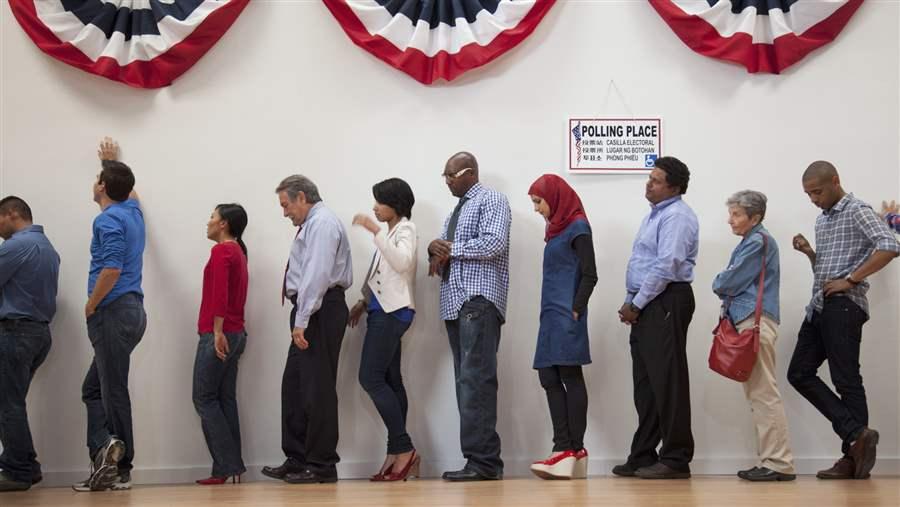Supreme Court Case Touts Electronic Registration Information Center
This page was updated Jan. 29, 2018, to reflect the most recent number of ERIC states.
Last week, the U.S. Supreme Court heard oral arguments for Husted v. A. Philip Randolph Institute, a case dealing with voter registration procedures, during which counsel for both sides recommended that state election officials engage the Electronic Registration Information Center (ERIC) to improve voter registration systems. One described it as a “state-of-the-art interstate database” that can help improve access to and the integrity of a state’s voter registration process.
ERIC is a sophisticated data matching center that is owned, funded, and operated by participating states. Through ERIC, states get access to an advanced tool to “anonymize” and analyze their voter rolls and match data against records from other states and some federal agencies. This allows state election officials to better recognize registrations that may need updating or cancellation and to identify and contact eligible citizens who have not registered to vote.
ERIC has informed member states of more than 8 million voters who have moved from their addresses on file but not registered at their new addresses; more than 200,000 deceased individuals still on the rolls; and over 25 million eligible but unregistered Americans, including more than 14 million in 2016.
The Husted case involves a challenge to voter registration list maintenance procedures in Ohio, which is an ERIC member state. Counsel representing the Ohio secretary of state noted that the state’s work with ERIC is something the court should view very favorably, specifically calling attention to the more than 1.6 million eligible but unregistered Ohioans who were identified and then contacted by the state with instructions about how to register vote.
ERIC launched in 2012 with seven member states and with assistance from The Pew Charitable Trusts. Its ranks have since swelled to 23, with Arizona and Missouri joining most recently after receiving grants from Pew to help with startup costs. Several more states are expected to join before the 2018 general election.
ERIC is dedicated to the highest standards of security and protection of citizens’ privacy and personally identifiable information. To this end, it converts voter records into an indecipherable string of characters that is unreadable and unusable for potential hackers. To strengthen these security measures, all records are sent through this anonymization process twice—first at the state level, before the data is sent to ERIC, and then by ERIC when it receives the data.
Alexis Schuler is senior director and Samuel Derheimer is senior manager of election initiatives for The Pew Charitable Trusts.









